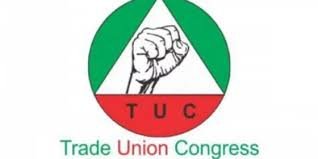Ahead of the two-day nationwide labour protest, the Trade Union Congress (TUC) has presented its demands to the federal government. Chief among these is an increase in the minimum wage to address the challenges posed by the rising cost of living.
The TUC President, Festus Osifo said the current minimum wage of N30,000 approved in 2019 is insufficient given the high inflation and the impact of fuel subsidy removal in 2023.
“We are not asking for too much. We are only asking for a living wage that can enable us to meet our basic needs and contribute to the development of the country,” Osifo stated while addressing journalists on Monday, February 26 in Abuja.
Expressing readiness to join the protest announced by the Nigeria Labour Congress (NLC) on Tuesday and Wednesday, TUC said the new minimum wage should be backed by a strong enforcement mechanism that ensures compliance in both public and private sectors, while defaulters are sanctioned.
READ ALSO:https://theexplainer.com.ng/nlc-protest-police-warn-against-commercial-activities/
Apart from the new minimum wage, the TUC also made some other recommendations to the government to address the economic hardship in the country.
These include:
Working towards a more realistic and stable exchange rate of the naira to the dollar, which the TUC suggested should be between N500 and N800, and clamping down on currency speculators, especially those operating online platforms that offer unrealistic rates and discourage remittances from abroad.
Reviewing the taxes and tariffs on some critical goods imported into the country, such as rice, wheat, sugar, milk and vegetable oil, to reduce the cost of production and consumption, and encourage local production and processing.
Instructing the Nigeria Customs Service (NCS) to facilitate trade and ease the movement of goods across the borders, rather than focusing on revenue generation and imposing arbitrary charges and delays on importers and exporters.
Ensuring the completion and operation of the Port Harcourt Refinery by the end of the first quarter of 2024, as part of the efforts to boost local refining capacity and reduce the dependence on imported petroleum products.
Intensifying the fight against insecurity and restoring peace and stability in the country, especially in the rural areas, where many farmers have been displaced or killed by bandits and insurgents, and creating an enabling environment for agricultural production and food security.
“The TUC hopes that the government will listen to the voice of the workers and the masses, and take urgent and concrete steps to alleviate their suffering and improve their welfare,” the statement added.






















